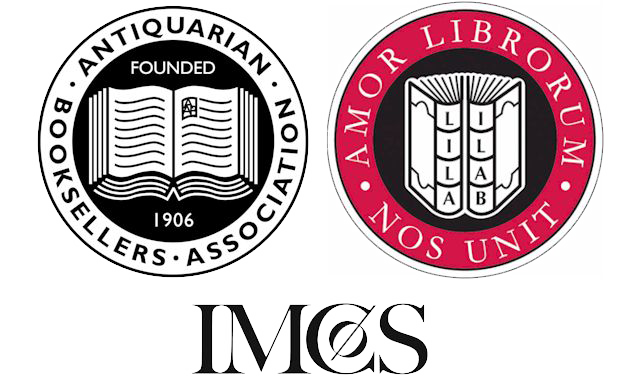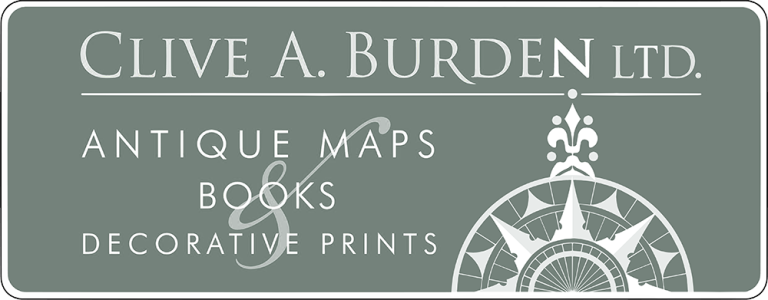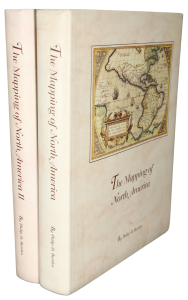Rare Maps and Prints
- World & Celestial
- North America
- West Indies, South & Central America
- British Isles
- British Isles
- English counties
- Large-scale
- Bedfordshire
- Berkshire
- Buckinghamshire
- Cambridgeshire
- Cheshire
- Cornwall
- Cumberland
- Derbyshire
- Devon
- Dorset
- Durham
- Essex
- Gloucestershire
- Hampshire
- Herefordshire
- Hertfordshire
- Huntingdonshire
- Islands
- Kent
- Lancashire
- Leicestershire
- Lincolnshire
- Middlesex
- Norfolk
- Northamptonshire
- Northumberland
- Nottinghamshire
- Oxfordshire
- Rutland
- Shropshire
- Somerset
- Staffordshire
- Suffolk
- Surrey
- Sussex
- Warwickshire
- Westmoreland
- Wiltshire
- Worcestershire
- Yorkshire
- Wales
- Scotland
- Ireland
- Western Europe
- Eastern Europe
- Middle East
- Africa
- Asia
- Australasia & Pacific
- Decorative Prints
- Title Pages
Mr. Philip D. Burden
P.O. Box 863,
Chalfont St. Giles, Bucks HP6 9HD,
UNITED KINGDOM
Tel: +44 (0) 1494 76 33 13
Email: enquiries@caburden.com
The two sheet map was engraved by Charles Whitwell (fl.1593-1611) a maker of mathematical instruments who was apprenticed to Augustine Ryther in 1582. In 1590 he became a freeman of the Grocer’s Company. His engraved works include 6 maps, 3 of which are dated from 1594-6 and include Norden’s map of Surrey 1594 (1 copy) and Symonson’s map of Kent. He was also the engraver of a recently discovered small silver globe, the earliest surviving made in England. When Robert Dudley fled to Italy in 1606 it is known that he took ten of his instruments.
Only two complete examples of the first state are known; in the British Library and the British Museum. As did so much material of the day the copper plates ended up in the hands of Peter Stent sometime around 1645 when he at first added his imprint. Of this only three examples are recorded. A third state was prepared in 1659 for inclusion in Thomas Philipot’s ‘Villare Cantianum, or Kent Surveyed’. For this he employed the services of the great Wenceslaus Hollar (1607-77). Pennington describes the engraver in glowing terms: ‘Of all etchers, Hollar is certainly the most varied in subject, one of the most accomplished in technique, and with a style that is full of a charm, a humour, and a good nature that are evidently the character of the man himself’. He was born in Prague and made his way to England in the party of Lord Arundel arriving in London in late December 1636. For the upper right of the map Hollar etched a panorama of Dover Castle and upper left one of Rye. The latter is after a painting by the great seventeenth century court painter Sir Anthony van Dyck (22 March 1599 – 9 December 1641). Pennington states that the original van Dyck painting was in the possession of Sir Bruce Ingram (1877-1963) editor of the ‘Illustrated London News’. It is now in the Pierpont Morgan Library, New York.
The fourth state of eight offered here erases the old date and replaces it with Stent’s address and the date 1659. Barber, Peter, ‘Mapmaking in England, ca. 1470-1650’ in ‘History or Cartography’ vol. 3 pt. 2 p. 1631 & Worms, Laurence p. 1713; Burgess (2009) 4.iv; Globe (1985) no. 343a; Hind (1952-55) I. pp. 223-4; Pennington (1982) no. 665; Rodger (1972) no. 213; STC 23594.5; Worms & Baynton-Williams (2011) p. 719.
A New Description of Kent divided into the fyve lathes thereof ... 1596
SOLD






